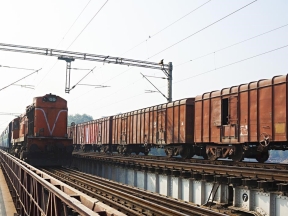Mohit Kapoor Chair – Projects and Events Committee, Warehousing Association of India (WAI) said, “In the fast-paced and ever-evolving world of warehousing, the workforce stands as a crucial pillar that determines the success of operational endeavors. The individuals working in warehouses play a significant role in ensuring that goods are efficiently stored, picked, and shipped to customers. However, this vital element often faces challenges such as skill gaps, reluctance to embrace change, and adherence to outdated practices. For instance, employees may struggle with the implementation of new inventory management systems or may resist adopting automation technologies due to fear of job displacement. Moreover, prevalent myths within the industry, like the fear of AI replacing human jobs or the misconception that upskilling is only for managers, further complicate the landscape. It is essential to debunk these myths and highlight the opportunities that advanced technologies and continuous learning can bring to all levels of warehouse staff. By providing training programs that cater to the specific needs of each employee, companies can empower their workforce to thrive in the digital age. Despite these hurdles, a groundbreaking solution has emerged in the form of a hybrid approach that blends AI-powered mobile applications with onsite training sessions. This innovative strategy is reshaping the landscape of warehousing operations, promising significant enhancements in efficiency and productivity. The integration of AI tools into daily warehouse tasks can streamline processes, reduce errors, and optimize workflow management. The Hybrid Solution tackles various industry challenges head-on, particularly the pressing need to bridge skill gaps across all levels of expertise. By utilizing AI tools and tailored learning modules, employees at every level are empowered to enhance their skills and adapt to the …
Read More »Global Rail Convention to focus on innovation & investment
The PHD Chamber of Commerce and Industry (PHDCCI) is all set to organise 11th edition of Global Rail Convention in New Delhi on January 23rd with the focus on journey towards Viksit Bharat through innovation, infrastructure investment and industry partnership. The event is expected to witness participation from top rail cargo and logistics experts from across the country. The event will focus on innovation, B2B, B2C, B2G presentations, global partnerships and will provide a chance for industry leaders to meet, greet and network,
Read More »‘Technology is the real enabler to boost air cargo growth’
“The air cargo sector needs targeted investments to handle growing demand effectively,” says Kunal Maheshwari, Chief Growth Officer, Softlink Global adding, “Increasing terminal capacities and establishing transshipment hubs will reduce bottlenecks and make India more competitive globally. But infrastructure alone isn’t enough, technology is the real enabler. For example, AI-powered platforms like Logi-Sys are already helping businesses manage shipments, optimize routes, and improve visibility. Such next-gen digital solutions are what I believe to be the need of the hour if businesses want to conduct smoother operations even in the face of growing complexities. By combining physical infrastructure upgrades with advanced digital solutions, we can create a logistics ecosystem that’s efficient, resilient, and future-ready.”
Read More »‘Govt must consider reviving ‘0’ % tax on air freight to support growth’
M Afzal Malbarwala, MD, Galaxy Freight says, “18 per cent GST on air freight is a big concern among the cargo agents and has affected trade as well. It has also increased costs for exporters and importers, potentially impacting India’s competitiveness in the global market. The government should consider reviving the “0” % tax on air freight to support trade growth.”
Read More »Beyond Sqfeet opens 1.10 lakh square feet facility in Kolkata
Beyond Sqfeet Supply Chain Solutions has signed a long-term strategic expansion project in Kolkata, at Ganesh Park, Ranihati, Amta, spanning over 1.10 lakh square feet. This advanced warehouse is designed to accommodate diverse storage needs, featuring heavy-duty racks with a capacity of 5,000 pallet positions (expandable to 8,000) for B2B Businesses, non-racking area for bulk and processing, two levels of RCC blocks tailored for B2C Operations and cold chain conversions. With existing warehouses in Dhulagarh and Dankuni, this expansion elevates Beyond Sqfeet’s footprint in Kolkata to an impressive 2,00,000 square feet by the end of its first year of operations. Beyond Sqfeet already serves major clients across various sectors, including Wellness, Fashion and lifestyle, Healthcare and Pharmaceuticals, IT, and prominent B2C brands. This expansion underscores the company’s commitment to creating a well-connected and efficient logistics ecosystem in the region. With seamlessly integration of a robust distribution network ( FTL / PTL ) that spans West Bengal and is supported by cross-dock centres in Siliguri, Guwahati, Ranchi, and Patna, Beyond Sqft looks to penetrate East & Micro market and position as a large 3PL Operator in the Geography. West Bengal, particularly Kolkata, has emerged as a key logistics and warehousing hub in eastern India, thanks to its strategic location and strong trade linkages with neighbouring countries such as Bangladesh and Nepal. The state serves as a vital gateway for trade and commerce while catering to a significant consumer base across Bihar, Odisha, Jharkhand, and Assam.
Read More »‘AI-driven tools, automation, robots to drive growth’
The air cargo industry is also set to embrace transformative trends such as hyper-automation which includes integrating AI-driven tools, robotic automation, and autonomous vehicles,” says Neha Kumari, Business Head – nGen by Cargoflash. Data driven insights include leveraging real-time analytics to optimise resources and respond proactively to disruptions. E-commerce growth requires streamlining operations for high-volume, cross-border logistics with seamless integration. Aligning IT systems with carbon tracking and eco-friendly practices. Ensuring agility, scalability, and risk mitigation to navigate uncertainties. nGen by Cargo Flash is at the forefront, empowering the air cargo industry to adapt, grow, and lead with innovative, future-ready IT solutions.”
Read More »‘Removal of GST on exports will ensure financial liquidity & business sustainability’
Dinesh Krishnan, Chairman, ACAAI Southern Region says, “The global and Indian freight forwarding industry operates within a framework of strict national and international regulations. A significant proportion of the industry comprises SME’s, dedicated to addressing the diverse and dynamic needs of the export and import communities which are again a major SME sector. In recent years, GST administration and compliance regulations have imposed considerable challenges for the logistics industry in tax administration and compliance. A lack of nuanced understanding of the sector’s unique operations by policymakers, coupled with poor coordination between central authorities and state level tax administrators, has left the industry grappling with uncertainties and inconsistencies. The introduction of GST on international freight has particularly disrupted the industry’s financial stability. It is a revenue neutral manufacturing / trading EXIM customer’s tax burden, imposed on the freight forwarding community in the form on GST on air and ocean freight. This has created an artificial financial crises and fund flow strain by locking freight forwarders business funds with the government and waiting for GST credit offset or refunds on GST for overseas billing. Crores of freight forwarders funds are stuck with GST refunds, beside rampant notices from the authorities, creating a liquidity tsunami and more expenses on tax administration across the country. The consequences have been severe since the GST on freight, numerous freight forwarders have shut down, while others are being driven out of business unbale to a bare this burden on blocked funds & tussle with GST authorities. This attrition risks leaving the burgeoning EXIM (export-import) trade reliant on a limited number of service providers, potentially creating monopolistic conditions and supply chain inefficiencies in the long term. Immediate action …
Read More »‘Delays in refunds, complex documentation, data mismatch between GST returns & shipping bills hinder ops’
Vipin Vohra, Chairman, Continental Carriers says, “Following the launch of GST in 2017, export air cargo was exempted from GST, starting January 2018. However, this exemption ended on October 1, 2022, imposing an 18% GST on air freight. Trade bodies have urged the government to reinstate this exemption, aligning with global practices where export freight services are zero-rated. The lack of exemption has distressed Indian freight forwarders, raised costs for exporters, and hindered cash flow, agents are calling for a permanent exemption. Cargo agents in India face significant challenges in obtaining GST reimbursements for export shipments. Delays in refund processing, complex documentation, and data mismatches between GST returns and shipping bills hinder smooth operations. Additionally, ambiguities in eligibility for Input Tax Credit (ITC) and blocked credits strain cash flows. The high compliance burden, coupled with inconsistent interpretations of GST laws, further exacerbates the issue. Expedited refunds, automation, clear guidelines, and a single-window grievance mechanism are essential to resolve these struggles effectively.”
Read More »‘Levying GST on exports has resulted in financial liability on exporters’
Sunil Kohli, Managing Director, Rahat Cargo says, “Our government has all along been encouraging the shippers to accelerate their export activities which creates an economical growth within the country apart from yielding substantial foreign exchange. However, levying a GST on export products has resulted in an additional & avoidable financial liability on the exporters majority of whom have already been facing the fiscal roadblocks on various heads. And consequently, the businesses especially the SMEs have to encounter enhanced compliance requirements with multiple deadlines leading to higher administrative cost. The GST has many complexities with assorted tax rates & rules making it difficult for an average exporter to navigate without professional assistance which entails extra expenses. Moreover, certain products & services have become more expensive due to higher GST. Also, the GST portal has frequent technical glitches. It is therefore felt that the exports should be kept out of the GST regime.”
Read More »‘This tax move is crippling agri-exports and jeopardizing agents’ survival’
Arun Kumar, President, Association of Multimodal Transport Operators of India (AMTOI) says, “Rent-seeking behaviour is detrimental to any economy, especially one aspiring to be the third largest globally. Imposing taxes on exports or their components undermines cash flow for the MSME-dominated freight forwarding sector, which operates on razor-thin margins of less than 2%. With an 18% GST outlay and delayed reversals, their margins are decimated. This ill-conceived levy under GST is crippling agri-exports by air and jeopardizing the freight forwarding community’s survival.
Read More » Cargo Breaking News
Cargo Breaking News









